EU summit: What Europe's reporters make of Brexit talks
- Published
The BBC's Ben Wright takes a look around the huge media centre at the summit
The European Union's 28 leaders are deciding on the reform package negotiated by UK Prime Minister David Cameron, but their governments are largely pre-occupied with other issues.
Here, correspondents covering the Brussels summit from around Europe describe how the UK's demands are viewed in their countries.

Jean-Pierre Stroobants, EU correspondent for French daily Le Monde
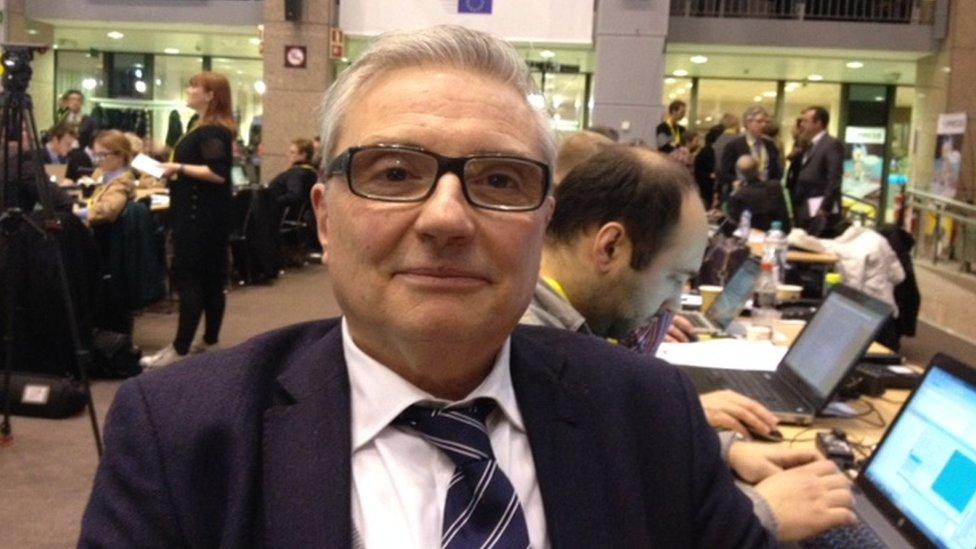
France is prepared to compromise, but not when it comes to the eurozone, says Jean-Pierre Stroobants
The question of UK membership is certainly a big issue for France, people understand it's also a big issue for Europe.
There's a feeling that Mr Cameron is protesting too much, and asking maybe too much.
In France I think they are fed up with the British complaining. And if Britain were to leave the EU many French people wouldn't really be sad. There is interest but I don't think people understand the real debate.
President Francois Hollande has said France doesn't want any possibility of the UK having a veto over eurozone decisions. And he doesn't want any emergency brake on the functioning of the eurozone.
But I do think the French government is ready to make some concessions.
The government doesn't say much about migrants' benefits. But I think ordinary French people are certainly not against raising this issue, because the situation is almost the same in parts of France.
French people understand that if the UK were to leave it wouldn't be good for Europe, certainly not in military and economic matters.

EU referendum - all you need to know
Brussels comes to life for Brexit showdown - by Katya Adler
Deal within reach, but much can go wrong - by Chris Morris

Ole Vigant Ryborg, veteran Brussels correspondent for Danish public broadcaster DR
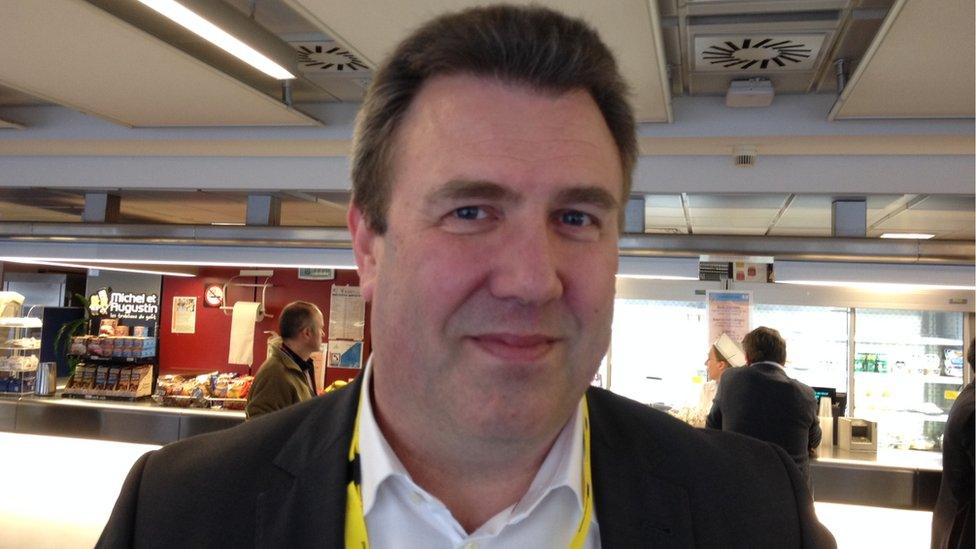
The possibility of Brexit is a major issue for the Danes, who have close ties with the UK, says Ole Vigant Ryborg
Denmark hopes that Britain will stay in the EU, and that a deal on welfare benefits is structured such that Denmark can use it too, especially when it comes to indexation of child benefits.
It's something that a majority in the Danish parliament would like to make use of too.
Danes feel more closely related to Britain when it comes to EU policy: they like the rhetoric about cutting red tape, the scepticism.
But the main interest is that this is a real issue, not just another Brussels deal. It might be for the first time a country leaving the EU, and it's Britain, a country we have been closely allied with.
The UK joined the EU together with us in 1973. And now they might leave. That is a huge issue for Danes.
If the deal ends with a Commission promise not to extend the child benefits proposals to other areas, for example [migrants'] pensions, then that would go against Denmark's wish.
Danish trade with the UK is about €5.5bn (£4.2bn) a year - we love selling bacon, butter to the British.

Fabricia Josten, reporter for German commercial news channel RTL
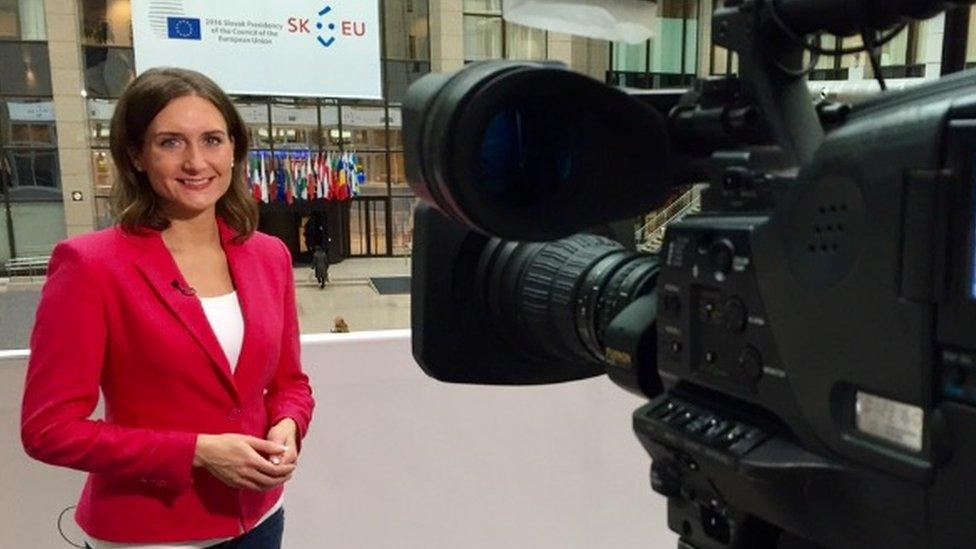
The refugee crisis is the big topic in Germany, so people have not followed the UK debate so much. And there hasn't been much discussion about migrants' benefits. I think these reforms are just a UK thing.
Most Germans want the UK to stay in the EU. Nobody in Germany can imagine the EU without the UK. It's an important export market for Germany, especially for German cars.
But for Germans the big problems are migration and terrorism.
Chancellor Angela Merkel has lost a lot of support, but this summit will not decide her future.
Many Germans wonder why Germany is so alone in the refugee crisis: where is the community? Other countries are not showing solidarity.

Tomasz Bielecki, Brussels correspondent for Polish daily Gazeta Wyborcza
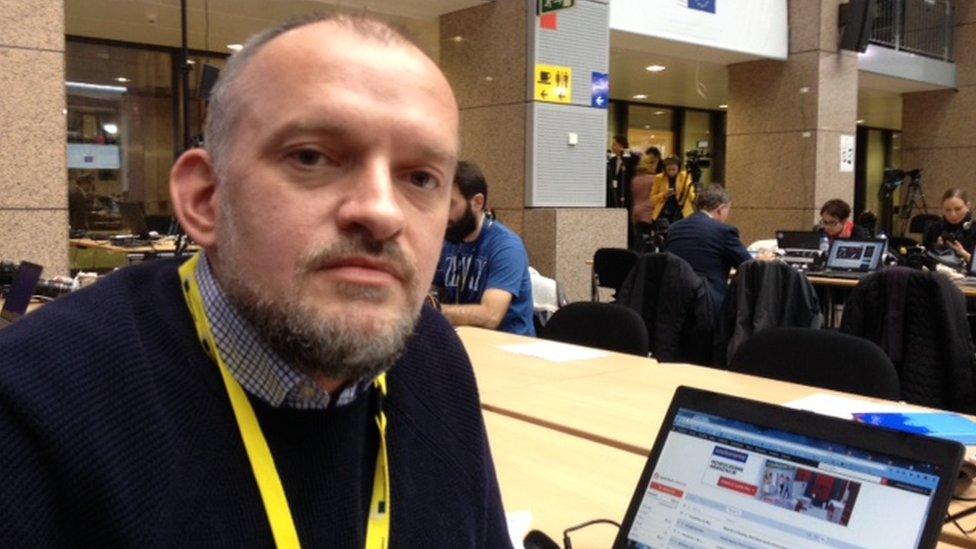
More Polish children have parents working in Germany than in the UK, says Tomasz Bielecki
Poles are not following this UK debate as closely as I expected, even when this debate is about benefits for EU workers in the UK.
The internal changes within the new, Law and Justice (PiS) government are so absorbing that they are dominating over international developments.
A huge majority of Poles want the UK to stay in the EU, more than 60%, and it's mainly for geopolitical reasons. Poles are thinking about our neighbour Russia and the need to have a strong EU.
The conviction is that with the UK in, the EU will be stronger. That's more important than jobs and benefits.
When Law and Justice was in opposition it raised this issue of defending Polish citizens' rights, on the benefits issue. But now they are in government, they have to face reality and understand they have to make compromises.
On child benefits, more Polish children have parents working in Germany than in the UK. More than 40% of Poles who work abroad and claim child benefits are in Germany.
There is support in Poland for the EU competitiveness argument and for a clear declaration that states should not have to pursue closer integration.

Antonio Delgado, reporter for Spanish public broadcaster RNE
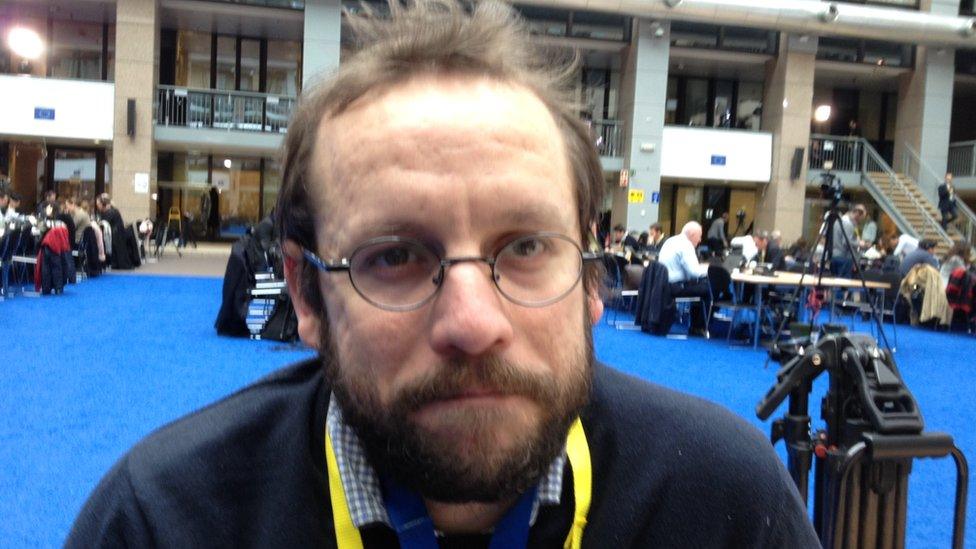
The referendum debate has raised the question of what will happen to one million Britons in Spain, says Antonio Delgado
At the moment the Spanish media agenda is very focused on domestic affairs and who will be in Spain's next government.
But the current Spanish government is acting as caretaker, so it has to get a mandate from parliament in order to approve a deal at this summit.
All the big parties gave the green light to a deal, but [left-wing] Podemos says no, because they warn that Spanish people in the UK could lose benefits. There are about 200,000 Spaniards in the UK.
In general, Spaniards feel the EU would be worse off without the UK economically. The UK is not in the euro, but very important for the single market.
The Spanish are still quite pro-EU, despite the economic crisis. There is also a big question about what happens to the one million Brits in Spain if the UK leaves, and the Gibraltar government has said it wants to stay in the EU.

- Published18 February 2016
- Published30 December 2020
